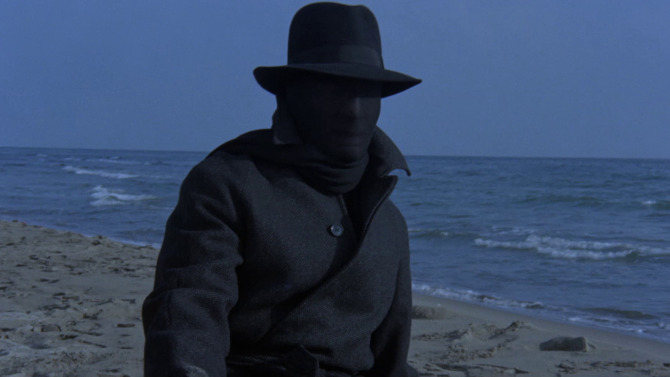
A Lawyer, a Mortician, and a Professor Walk Into a Morgue...
One of the trends of the gialli, when possible, was for the film making team to attract a formerly successful Hollywood star who had aged out of his heyday a bit... think The Pyjama Girl Case who nabbed Ray Milland, The Cat O’Nine Tails starring Karl Malden, or The Killer Is On the Phone featuring Joseph Cotten... and, with today’s example, Farley Granger leading So Sweet, So Dead (1972). Directed by Roberto Bianchi Montero, the feature, which is also known as the less subtle The Slasher ... Is the Sex Maniac! follows a small city detective, Inspector Capuana (a mustached Granger – They Live by Night; Side Street), who has recently moved to a larger locale in southern Italy.
-
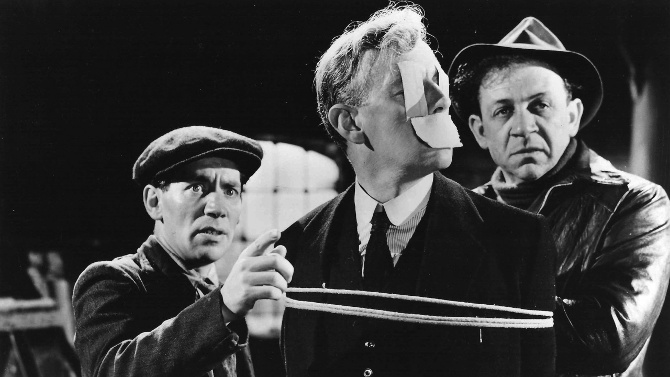
Not Your Typical Mob Movie
The Lavender Hill MobJanuary 21, 2020Ranked as the 17th greatest British film of all-time by the British Film Institute (and perhaps a bit more surprisingly, finding itself on the Vatican’s top 45 “great films” – in the “art” category), 1951's The Lavender Hill Mob, written by T.E.B. Clarke (winning him the Oscar for Best Writing, Story and Screenplay) and directed by Charles Crichton (A Fish Called Wanda), is a clever send up of the crime caper. Setting out to write an authentic crime story, Clarke actually went to the Bank of England, looking for advice. The Bank formed a special committee, the screenwriter asking numerous questions as they basically laid out the only way such a heist could work (by today’s standards, this seems absolutely ludicrous), meaning that, what we see in this 1951 feature is an accurate portrayal of what it would have taken to rob this iconic institution.
-
Star Pick with Robert Sheehan
 Rough RoughDogmanJanuary 17, 2020
Rough RoughDogmanJanuary 17, 2020When I first started watching the excellent British series Misfits (somewhat scarily, about a decade ago), I was completely impressed with their lineup of talented young stars (all playing delinquents forced to do community service – who also happen to have superpowers). I expected many of them to go somewhere, and I have not been disappointed – Joseph Gilgun is arguably the most entertaining part of the American show Preacher (as Cassidy); Iwan Rheon scared millions of viewers as the vile Ramsay Bolton on Game of Thrones; Antonia Thomas is a main player on the hit series The Good Doctor (as Dr. Claire Browne); while my favourite character on the series was brought to vivid life by Robert Sheehan (who played the hilarious Nathan). A man of many dimensions, I then followed him to the Irish series Love/Hate, a role that showed his range as a very serious young man working in the Dublin underground crime scene. Also, over the years, he has had some promising roles in films such as The Mortal Instruments: City of Bones, The Messenger, Geostorm, Mute, Mortal Engines, and, currently has found his groove in North America on the acclaimed Netflix series The Umbrella Academy.
-

An Irishman in an Italian Landscape
The IrishmanDecember 8, 2019Oh, how times flies – first they were Goodfellas. . . now they’re old fellas. Martin Scorsese re-teams with Robert De Niro, Joe Pesci, and adds Al Pacino (shockingly, the two had never previously worked together) to the mix in the 2019 film The Irishman. All kidding aside, it is fascinating how time changes things. Twenty-nine years ago the triumvirate mentioned above worked together on Goodfellas, three forty-something’s on the top of their game. . . arguably still on their respective games, they are all now north of seventy-five.
-
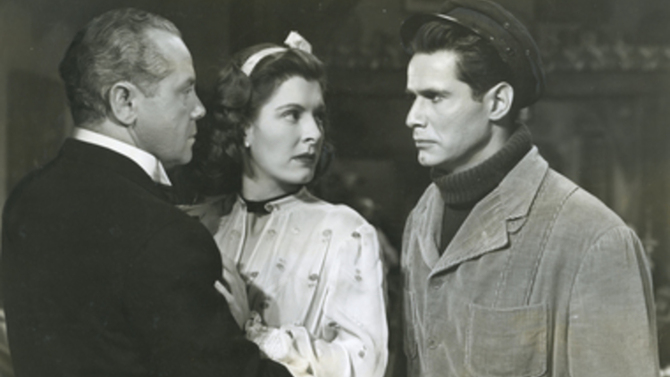
French Kiss… Of Death
So Dark the NightNovember 15, 2019An overtly cheerful vacation romp to the French countryside. . . until it isn’t, 1946's So Dark the Night, directed by Joseph H. Lewis (Gun Crazy), transforms from unexpected romance to film noir murder mystery in the blink of an eye. Following famous Parisian detective Henri Cassin (Steven Geray), the man is finally getting his long awaited vacation. Though those within the station talk about his recent stress level, the portly, closing-in-on-retirement detective seems in very good spirits.
-
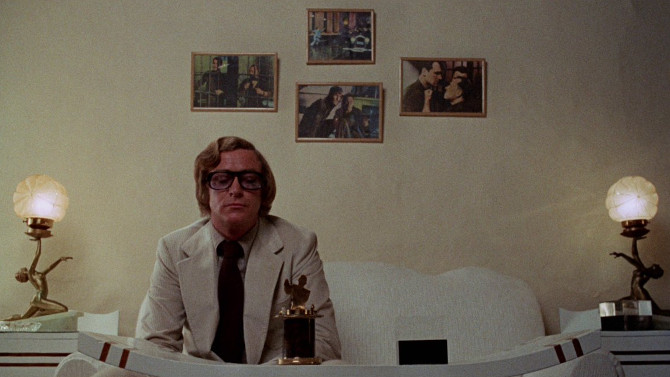
Stranger Than Pulp… Fiction
PulpJuly 2, 2019Just a year after making one of the greatest crime pictures ever to come out of the United Kingdom – 1971's Get Carter, the film’s three Michaels, producer Michael Klinger, writer/director Mike Hodges, and star Michael Caine reunited for a rather eccentric mishmash of genres and ideas – Pulp. Bringing together an all-star team of creative minds, on top of the above mentioned Michaels, the film is edited by iconic director of five James Bond flicks John Glen (his first, 1981's For Your Eyes Only, his last, 1989's Licence to Kill), cinematographer Ousama Rawi (perhaps best known for his excellent television work on shows like The Tudors and Borgia), while the music was composed by famed Beatles’ producer George Martin (often nicknamed the fifth Beatle).
-
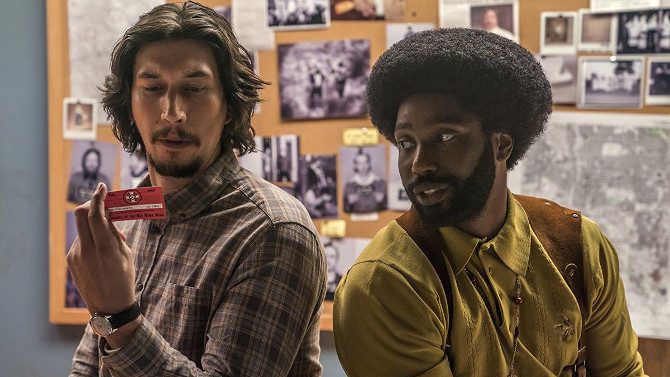
Klandestine
BlacKkKlansmanFebruary 5, 2019It is hard to fathom that Spike Lee is now forty years into his film making career – and it has taken exactly that long for one of his motion pictures to earn a nomination for an Oscar for Best Picture, or Best Director for that matter (though he has been given an Honorary Award from the Academy). His first nomination came for his ‘Brooklyn cultural clash of love and hate’ screenplay for 1989's Do the Right Thing, and it is no surprise that 2018's BlacKkKlansman (which has earned six noms, including three for Lee – Picture, Director and Adapted Screenplay) holds a similar microscopic lens to the tensions smoldering just below the surface in the United States. At times excessive and over the top in its style, it is no surprise when you look at the time frame that the screenplay covers. Set in the early 1970s, it is a time of black and white thinking, radical movements such as the Black Panthers, the Ku Klux Klan, and even the police taking sides. . . the grey milieu forced to either side as cultures clash, as anger simmers to a boil, as times they are a changing.

